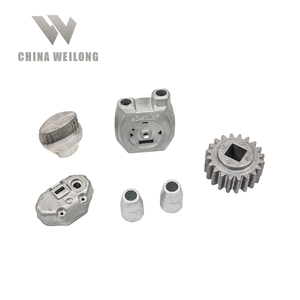-
 Find in Members
Find in Members Find in Videos
Find in Videos Find in Channels
Find in Channels
This website uses cookies to ensure you get the best experience on our website.
To learn more about our privacy policy Click herePrivacy Preference
- Tags - #lead die casting zinc die casting
-
- Last updated January 6, 2021 0 comments, 254 views, 0 likes
- Yuyao, Ningbo, Zhejiang, China - Get Directions
More from wei long
More in Politics
Related Blogs
Prevention Of Lead Poisoning Diet For Lead Die Casting Workers
Body
Working in lead die casting factories and other places, occupational poisoning was a relatively common disease in the past, but as preventive measures become more and more perfect, few people will be occupationally poisoned again. So for these, we should pay attention to diet How to prevent it?
In order to enhance the body's resistance and protect the target tissues and organs affected by occupational hazards, some special nutrients should be appropriately supplemented according to the nature and characteristics of occupational lead exposure. There are many ingredients in food, which can chelate lead and resist lead damage. Alfalfa is rich in vitamins, minerals and other useful nutrients, and has a detoxification effect on the body. Adults can try aloe vera juice. Drink half a cup in the morning and half a cup before going to bed to soften bowel movements and help remove metals from the digestive tract. In addition, lecithin particles or capsules, selenium and glutathione can be supplemented. Iron, zinc, copper, selenium, germanium, etc. all have a certain resistance to the toxicity of lead. These nutrients are rich in fruits and vegetables, such as prickly pear, sea buckthorn, kiwi fruit, kelp, onion and garlic. Therefore, people exposed to lead should consume more fruits and vegetables. The ideal daily meal should include more than 3 to 5 kinds of vegetables, 2 to 3 kinds of fruits, and not the same color. Try to eat as many fruits as possible that are rich in fruit acids, vitamin C and bioflavonoids. They help resist lead damage and remove lead from the body.
Of course, in addition to lead die-casting, zinc die casting workers will also suffer from occupational poisoning, but self-prevention is also very important, so no matter what job you do, protecting your own safety is the most important thing.
Photos
Map
-
Locations on MyWorldGo
Location Information
- Location: Yuyao, Ningbo, Zhejiang, China - Get Directions
- Formatted Address: Yuyao, Ningbo, Zhejiang, China
- Street Address: Ningbo
- State: Zhejiang
- Country: China








Comments